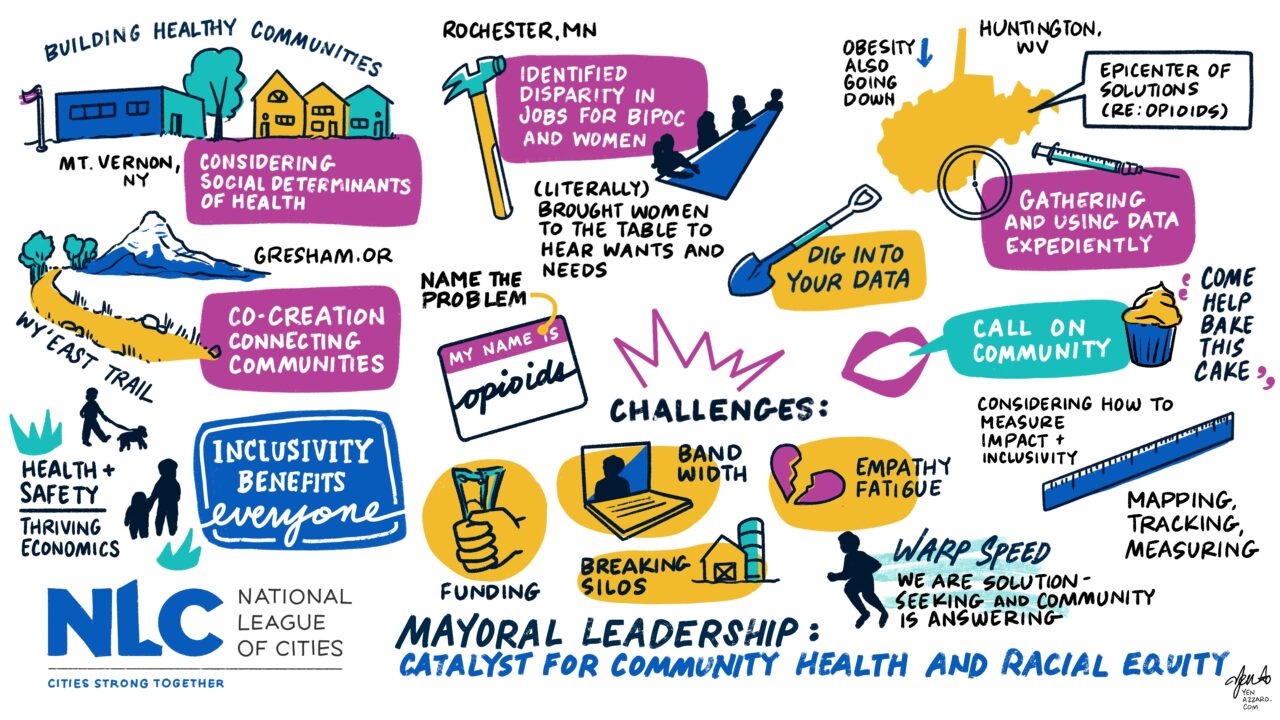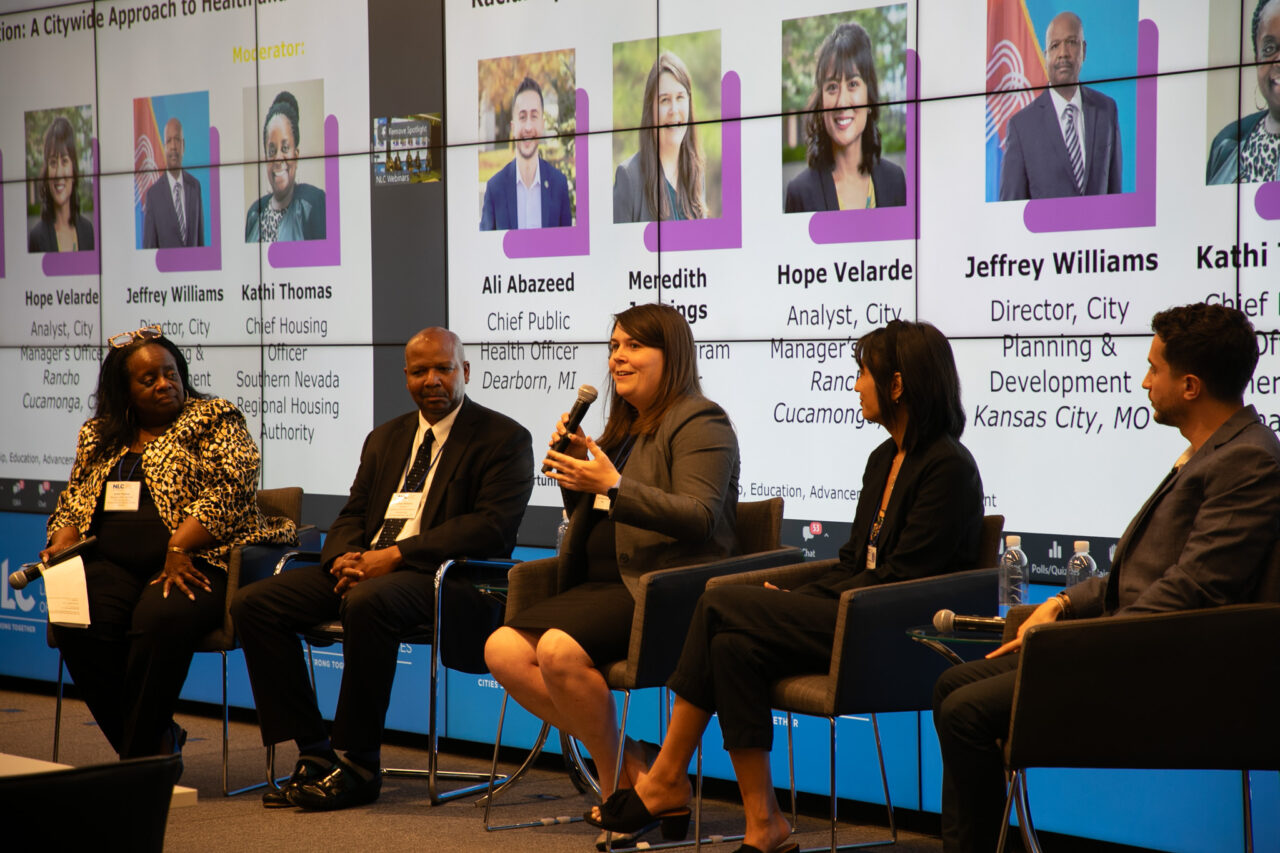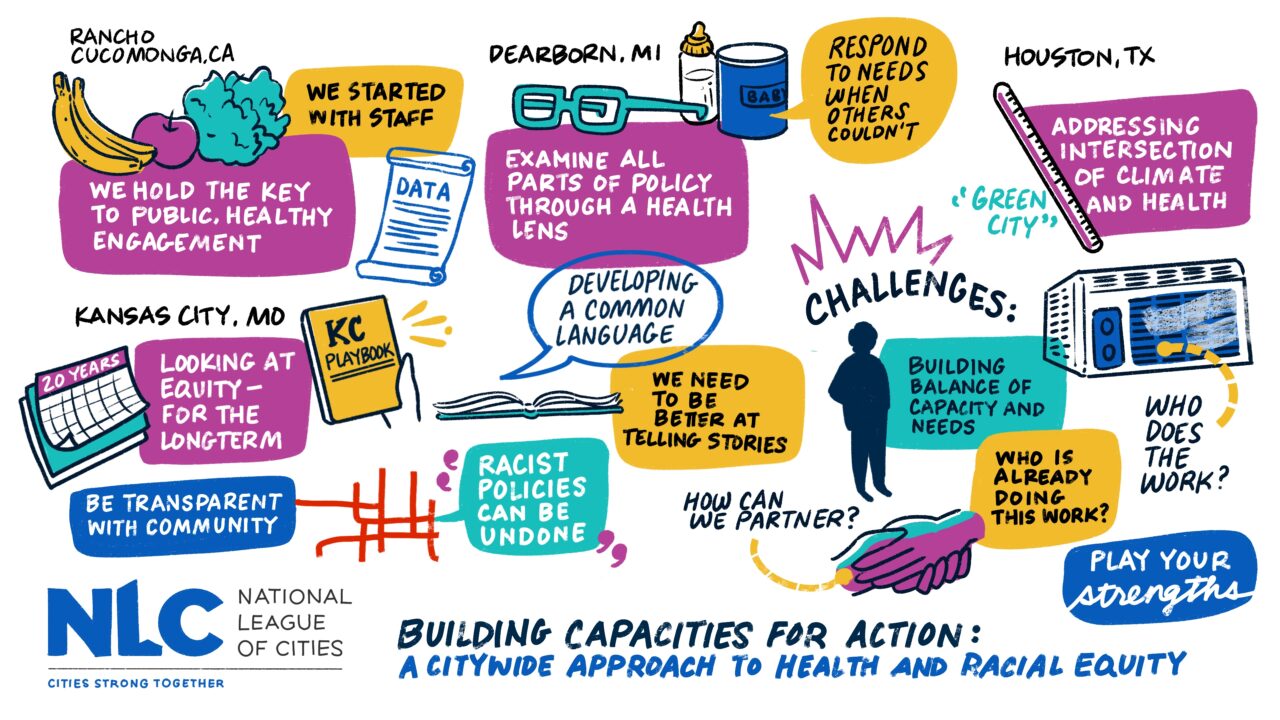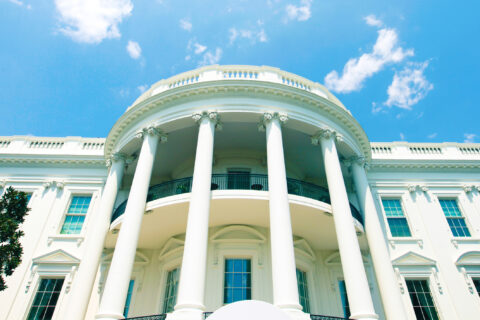On May 8, 2024, city leaders, staff, and partners joined together to take part in the Cities of Opportunity (CoO) Solutions Forum. Cities of Opportunity helps city leaders accelerate their health equity work, embedding the tools they develop through the program into the foundation of their operations.
When city leaders embrace their roles as health leaders, they lay the groundwork for equity and well-being as urgent priorities for their communities and create opportunities for growth and development across sectors. Here are three takeaways from Solutions Forum discussions among city leaders about the importance of prioritizing equity in municipal work and what that prioritization looks like in practice:
1. Perspective Drives Solutions
From high rates of substance use disorder and diabetes to poor air quality and contaminated water sources, every city faces challenges in protecting the health and well-being of its community members. The opportunity for success in the face of these challenges lies in the way leaders tell their stories. Every obstacle holds the opportunity for growth and systems change in the name of equity. Just as racism and historic marginalization create the conditions for these health disparities, city leaders can rebuild local systems to serve those same populations who were victims of those old systems.
When asked about his experiences as mayor of a city considered to be at the center of the opioid epidemic, Mayor Steve Williams of Huntington, WV, responded with a correction: he does not see his city as the center of the epidemic but at the center of the solution to the epidemic. Williams went on to highlight that the progress his city has made has been motivated by the knowledge that the challenges they face pose a unique opportunity for progress and innovation. “We have labeled ourselves a city of solutions, and with those solutions, we make sure that we are able to measure our progress.”

Ask Yourself: What is your internal narrative?
In developing infrastructure and programs to improve health and racial equity in your community, consider the story your team is telling itself about the city’s past. Is your narrative one that drives solutions? How can you reshape that narrative to recognize the opportunities for change in your work?
2. Data is Only as Powerful as Your Values
Data is an important tool in supporting alignment in community and government interests through transparency and communication. Mount Vernon, NY, uses GIS to map their work so community members can visualize what work is being done and how many dollars are being invested into which neighborhoods. “We are showing where the economic investment is and where the resource investment and the change is happening in our community in a way that our residents and our stakeholders can track along with us,” explained Shawyn Patterson-Howard, the city’s mayor.
“We do not make data-driven decisions. They are data-informed, but they are value-driven.”
– Kathi Thomas, Moderator of the panel for city staff and community partners
Jeffrey Williams, Director of City Planning for Kansas City, MO, discussed his team’s approach to data collection and implementation in their work as a process of identifying priority for the community. “It is really community leading first. What has the community identified as its needs? You have 100 data sets. What’s the most important one to them? What’s the one thing that, as a community, they’ve done that they’d love the government to amplify?” Williams emphasized that transparency with the community in data collection, inviting their input, and highlighting where there may be bias in their process, were all critical in putting their collected community data to use.

Ask Yourself: How do your values drive your data?
When you use data to inform policy and program development, what measures do you take to connect with your community in the process? How are community interests factored into your data collection efforts?
3. Input Begets Output in Community Engagement
Community engagement is critical in improving the health and well-being of any city. Solutions Forum panelists reflected on their efforts to engage with the community, highlighting the practice of engagement as one requiring intentionality, creativity, and transparency.
When local government invites the community into their planning and development process, those community members see themselves as part of the process. Mayor Travis Stovall of Gresham, OR, noted that his administration’s efforts to engage with the community led to a more reciprocal relationship between the local government and the community. “As our community members begin the opportunity of having more input on the output that we create in the community, that by nature will generate community. That by nature connects them to what we’re now doing.”

Ask Yourself: How are you intentionally engaging community members in your work?
Effective, ongoing community engagement requires investment in the relationship between the community and local government. What community engagement elements are built into your processes? How do you demonstrate to community members that their input is not only valued but a critical element of the work you do?
How Race and Equity Impact Community Well-Being
Tuesday, June 11, 2024 at 2 PM EST
As we look to the future of health and racial equity in municipal work, these key learnings will serve as foundational elements of achieving our goals. The Cities of Opportunity Initiative is carrying this discussion forward in a June Learning Lab. Register now for the virtual discussion on how race and equity impact community well-being. The Learning Lab will feature city staff with unique perspectives on what it means to prioritize equity in municipal work and serve as a space for brave conversation among attendees about the challenges and triumphs they have encountered in their own work.






